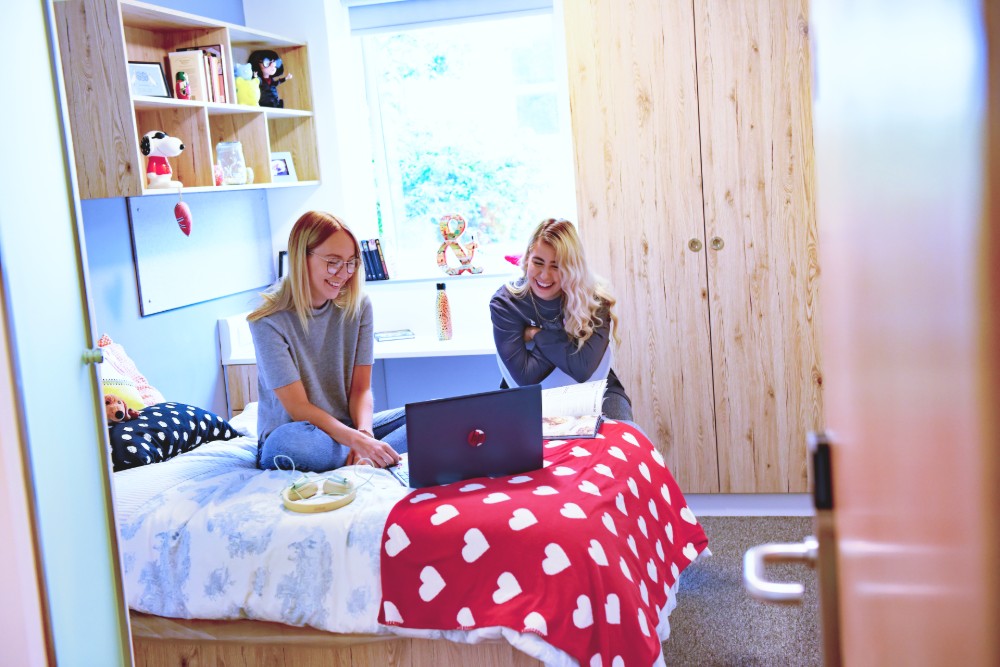Beth Wilson is studying BSc (Hons) Diagnostic Radiography and is in her second year here at Teesside University. Here she talks about her top ten tips for revising effectively during exam season.
Revising for exams can sometimes be a little overwhelming. Here are my ten top tips for effective revision:
- Start early – the earlier you start the longer you have to revise your material and break down your topics into manageable sections.
- Make a list of all the topics you need to study with the subtopics as well – splitting up the topics into manageable sections will help a lot.
- Organise your time – create a realistic timetable to plan how long you’re going to spend on each topic and when. Make sure to plan sufficient time in for relaxation, socialising, exercise, fresh air, regular meals and sleep.
- Find out what type of learner you are – if you are a visual person create posters, drawings and visual aids and place these around your room so you can read them as you are going about your day. If you are a verbal learner, try teaching someone the information or discuss it over a FaceTime or study meeting with classmates.
- Go through your notes from your lectures and seminars – highlight the most important and relevant sections to you. Create bullet points to gather together the highlighted information, try to keep it down to one page to really consolidate the information.
- One for the visual learners – use colours. Not only does this brighten up your work and make it look more interesting but by choosing different colours for certain types of information you’ll make the information more memorable.
- Use YouTube tutorials – a lot of useful, educational and revision-based content can be found on YouTube. Most of the videos are interesting and jazzy so can help keep your concentration for longer. It’s a good way to break up your revision practice and think about the information in a new way.
- Test yourself – most textbooks contain questions to test your learning and past papers are readily available. Use these to test how much information you are retaining. Also, create flashcards, use your notes to create questions and answers. You can then carry these around and quiz yourself whenever you want to.
- Review your topics – when you think you have gone through all the information read through your page of bullet points to make sure you have remembered everything you thought was important at the beginning.
- Create a positive study space – choose a space in your home or accommodation to study in and set yourself up to work, keeping the area fresh and tidy. Make sure you have your laptop, iPad etc in the right position, gather together your stationery, notes and books and make yourself comfortable.
Stay positive and share how you’re doing with friends, family and your tutors. Always ask for help if you’re feeling overwhelmed or struggling with anything.
Remember that you’ve already learnt the information and that this is simply a time to consolidate your learning, revise key information that you already know, and prepare to prove your knowledge.
Best of luck!
By Beth Wilson.




